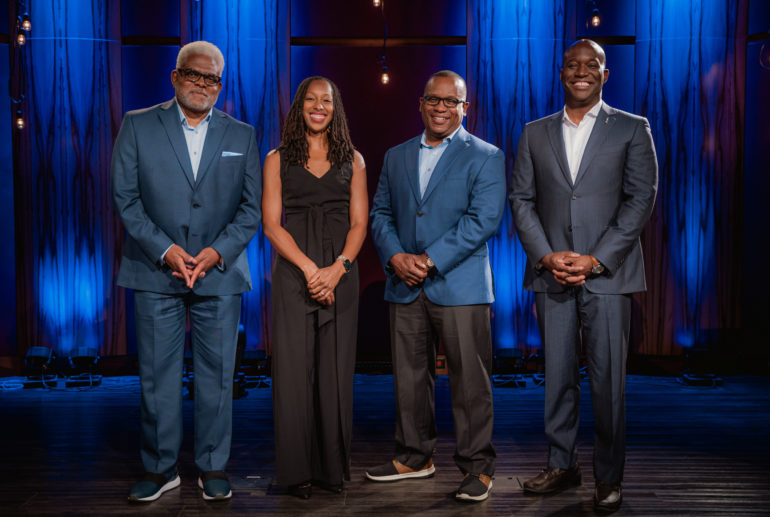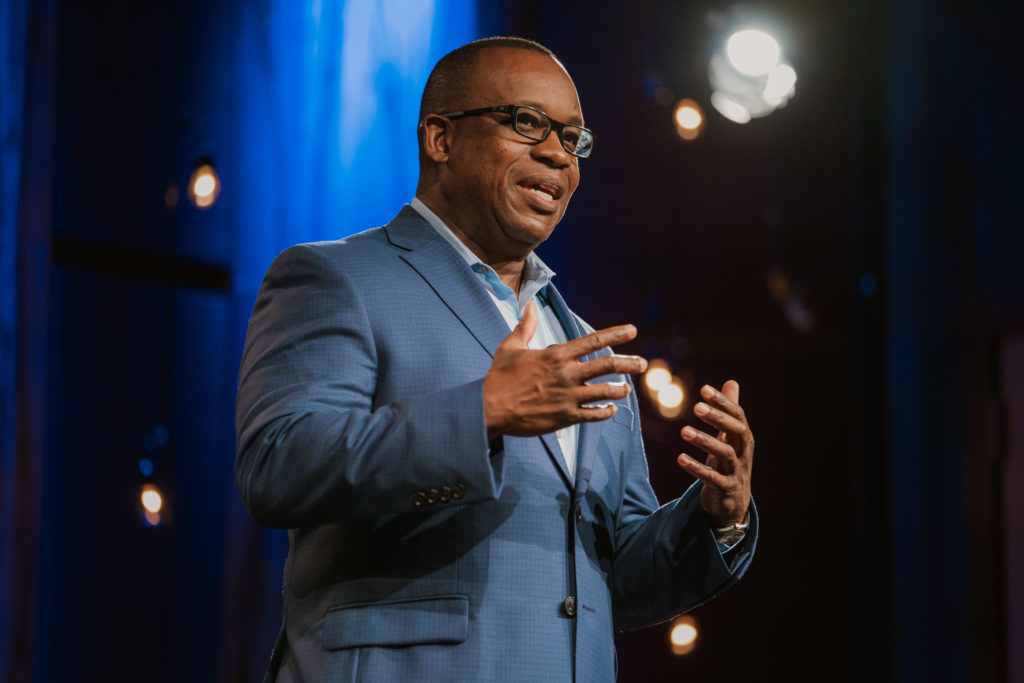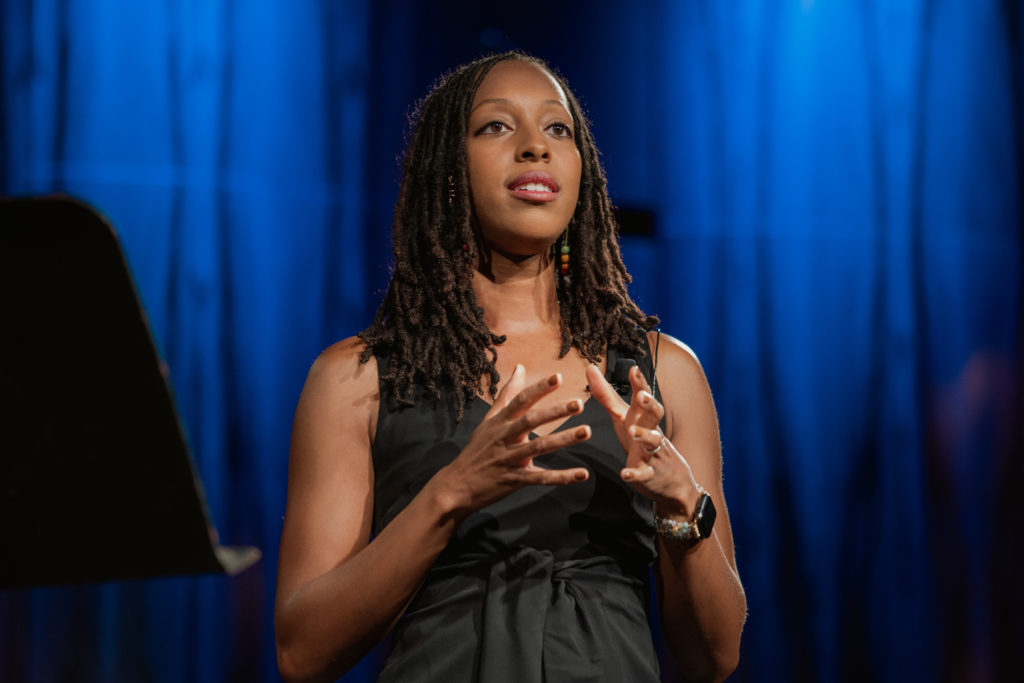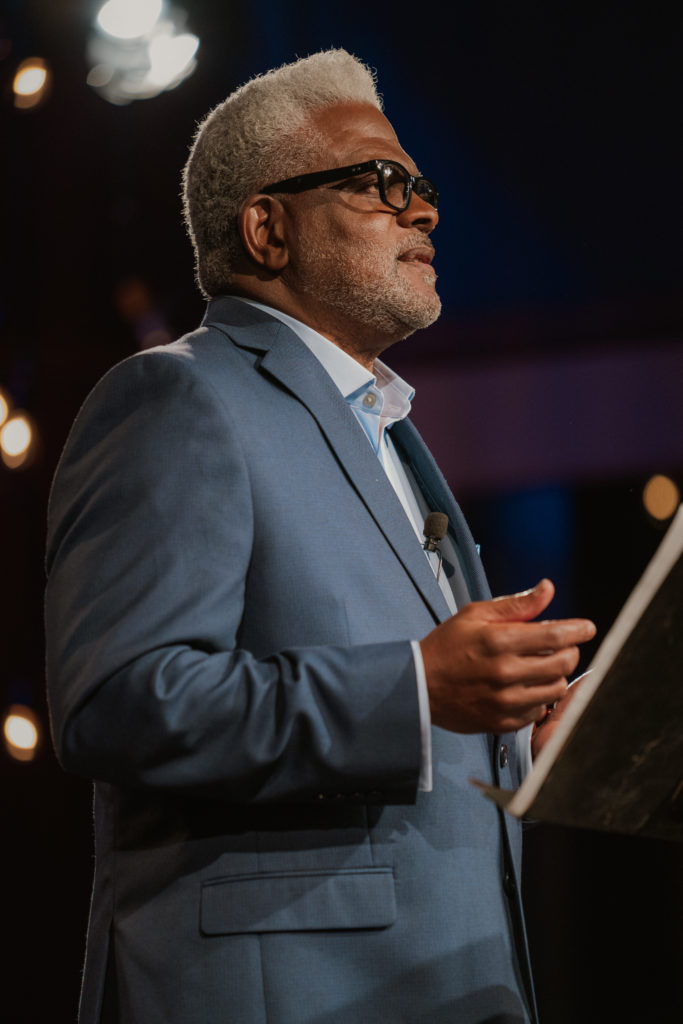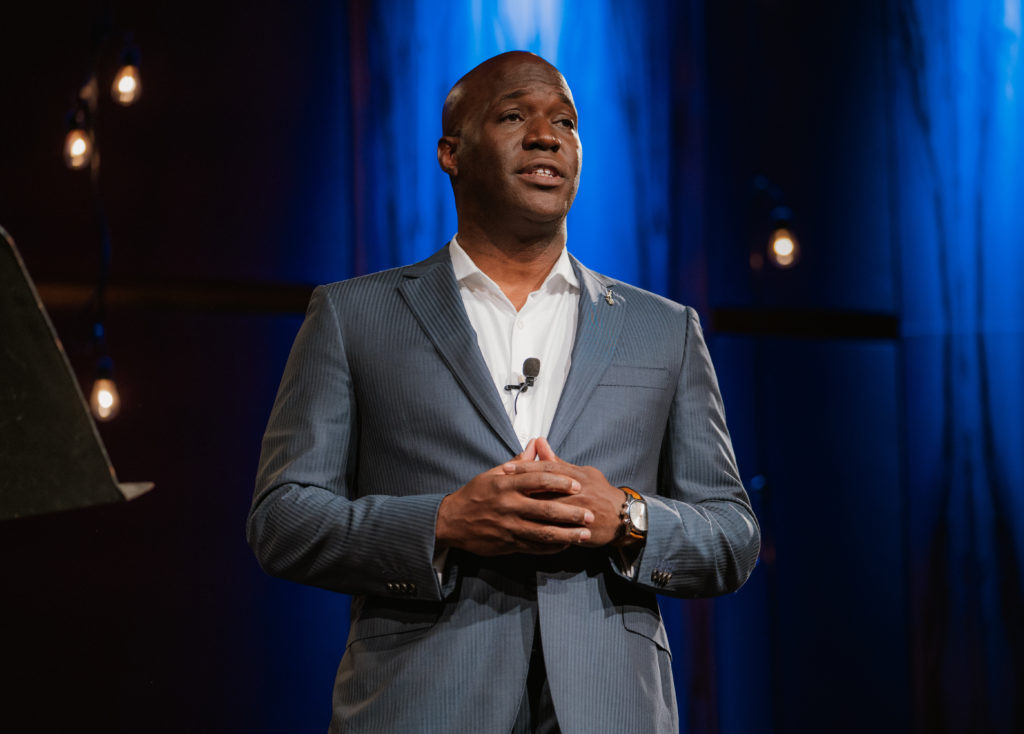When thinking about diversity and inclusion, consider music. A symphony orchestra is comprised of the strings, the woodwinds, the brass and percussion. Without one, you lose the depth of sound. Without them all, you lose the genius of Beethoven or Mozart.
In medicine and clinical research, innovation and widespread impact cannot be achieved unless representation from every section of culture and society is included in the planning, study and application of tools and methods that improve human health.
“Quite frankly, what we are working toward and what we’re trying to achieve is too important to let our personal differences slow down our progress.
— Duane Mitchell
Black Voices in Research, a storytelling event, premiered its second episode on YouTube on Juneteenth, or June 19, to highlight the experiences and stories of individuals within the UF biomedical research community. Developed by the Diversity and Cultural Competence Council, a group within the UF Clinical and Translational Science Institute, or UF CTSI, this series aims to continue to expand and elevate the need for inclusivity in medicine and research through the stories of researchers and research staff. Filmed at Gainesville’s Heartwood Soundstage and produced by local storytelling organization Guts & Glory GNV, Black Voices in Research is just getting started.
Joseph A. Tyndall, M.D., M.P.H., former associate vice president for strategic and academic affairs for UF Health and chair of the Department of Emergency Medicine at UF, kicked off the conversation by recounting the adversity that followed him while striving for a career in science.
“This Black face, this Black man who’s in front of you, didn’t think he would have a chance to reach the sort of heights and the sort of important inflection points in the career that I’ve been able to reach,” said Tyndall, who began a new role July 1 as dean of the Morehouse School of Medicine in Atlanta.
This sentiment isn’t surprising in medicine and clinical research, where principal investigators on National Institutes of Health grants are predominantly white; less than 2% are Black, 3.4% are Latino, 0.4% are American Indian or Alaska Native and 1.2% are Native Hawaiian or other Pacific Islander.
Brittany Southern, D.V.M., a clinical assistant professor and a veterinarian with UF Animal Care Services, echoed Tyndall’s sentiment.
“By supporting the goals and passions of researchers from only a certain background, we limit ourselves to only explore certain areas of science,” said Southern, noting that just 2% of all veterinarians are Black and that the percentage of Black veterinarians who care for and manage animals in research is even smaller. “When we open up opportunities for diversity, equity and inclusion, we springboard ourselves into a new direction; we’re able to explore novel areas of science.”
The third speaker in the episode, Alachua County poet laureate E. Stanley Richardson, lends his lived experience to the UF CTSI Citizen Scientist Program, where community stakeholders operate as consultants to UF researchers to share their insights and ideas on how medical research is conducted — or should be.
While 40% of the U.S. population identifies as a race or ethnicity other than white, it’s reported that only 10 to 20% of clinical studies include representative proportions of patients who are part of an underrepresented minority group.
“On occasion, I still do ponder the question, ‘Why am I here in this space?’” Richardson said. “Maybe the reason I am here is to help bridge the gap between my community and clinical research; to help shed light on the historical impact of racism and discrimination in clinical research practices and how the lack of diversity in clinical research negatively impacts the Black community. For whatever reason, I am here. And forever how long, I am here.”
Finally, Duane Mitchell, M.D., Ph.D., the Phyllis Kottler Friedman Professor in the Lillian S. Wells Department of Neurosurgery, closed out the storytelling event with warm recollections of his family, contrasted with the stark reality of preconceived notions of what it means to be Black in medicine.
“Quite frankly, what we are working toward and what we’re trying to achieve is too important to let our personal differences slow down our progress,” said Mitchell, who has made it his goal as director of the UF CTSI to foster a greater sense of inclusion in biomedical research and health sciences. “It’s our job to create a community, to make our faculty and staff feel like a family.”
At the end of the second episode of Black Voices in Research, Tiffany Danielle Pineda — a research navigator at the UF CTSI and chair of the DC3 — reminded viewers that music can help illustrate that embracing the diversity of all kinds of people, and the sustainment of each, is what will lead medicine and biomedical research down a solid path forward. She ended the stories in this episode with these words from a spiritual song:
“I ain’t goin’ to let nobody turn me round, turn me round, turn me round. I ain’t goin’ to let nobody turn me round, keep on walkin’, keep on talking’, marching till I reach freedom. Freedom land.”
View Black Voices in Research, a Storytelling Event, online:

